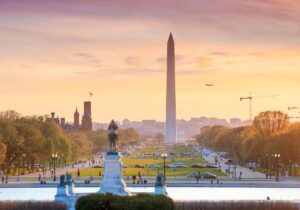Despite the failures of the Iraq War, the promotion of democracy abroad is still a core value of the US foreign policy. This is why agencies such as USAID support several democracy initiatives around the world. The US has also portrayed itself as a “city on the hill,” as an example to the community of nations regarding the protection of the most basic civil liberties. This perception, however, has been severely damaged in the years that followed the so-called War on Terror, with US enemies using the heinous images of Abu Ghraib to delegitimize the country.
Recently, the reputation of the US as a guardian of democracy and human rights is being questioned again. The reason? The invasion of the US Capitol by Trump supporters who deny that Joe Biden won the 2020 presidential election, resulting in five deaths. Latin American news outlets covered it as a coup d’état attempt, though insurrection or putsch is a better term. Latino journalists and political scientists asked themselves what would be the reaction of the Organization of American States if the same events had happened in countries such as Bolivia or Venezuela. For many Brazilians on Twitter, for example, what happened on January 6 in Washington, DC, made clear that the US has no right or credibility to lecture any country of the region about democratic values. This perception has been explored by several political actors who profit from the US international decline and the ascension of new powers, especially China.
In doing business with African and Latin American countries, Beijing has made clear that, unlike the US, the human rights records of international partners do not concern Chinese authorities. They can’t worry because the country has its own human rights violations, such as incarcerating approximately one million Uighur Muslims in government-run detention centers.
This perception in Latin America and elsewhere is very troubling and should worry American conservative Christians who care about international religious freedom. During his four years of government, Donald Trump made his commitment to the defense of religious freedom clear and even launched an International Religious Freedom Alliance, which, according to Secretary of State Michael Pompeo, would “unify powerful nations and leverage their resources to stop bad actors and advocate for the persecuted, the defenseless, and the vulnerable.” Nevertheless, how can these goals be achieved when the man behind them is reluctant to recognize his electoral defeat and, as a consequence, incites a mob to attack one of the main symbols of the US democracy?
Christians who minimize what happened on Capitol Hill seem to not realize how problematic the assault was. By spreading conspiracy theories from QAnon and others while rejecting the official results of the US presidential elections, these people not only threaten one of the biggest democracies of the world, but they also harm US credibility and legitimacy abroad. If the US domestic institutions are untrustworthy, what about the International Religious Freedom Alliance, or the respected US International Commission on Religious Freedom (USCIRF)? How can the US confront China, Iran, Venezuela, Cuba, and other human rights violators around the world when American citizens give these same governments ammunition to question US democracy and human rights?
Appealing to international religious freedom may not sound like the most obvious argument—indeed, there are many reasons why Christians must take a stand against what is happening in the US. However, this appeal is important because it affects the lives of millions of people around the world—not only Christians but also Muslims, Yazidis, Jews, Hindus, and several other religious minorities. The Trump administration did a great job by making religious freedom part of the international human rights agenda. But his behavior undermined much of his accomplishments, delegitimizing the same cause he championed.
In this regard, Brazil may be one state that stops promoting international religious freedom. The country is one of the members of the alliance Trump formed, and its president, Jair Bolsonaro, proudly calls himself a “Trumpist.” He also claims to defend religious freedom as an international human right. Bolsonaro even mentioned it at his speech at the UN General Assembly last year. However, due to his poor stances concerning other basic human rights, democratic values, and environmental protection, Brazil has become a pariah in the international community. No one really believes the Brazilian president or his supporters when they claim to care about religious freedom. Now they have less incentive to do anything to support the rights of religious minorities globally, and fewer Brazilians will take the cause seriously.
The US, just like any other nation, has committed failures and foreign policy mistakes. But in comparison to other international actors, the country still has great potential for doing good and making the world a better place, despite the presence of sin and human nature, as Christian realists point out. But to accomplish this, the US must remain a solid democracy. That’s why conservative Christians should be the first to denounce what Trump did. Joe Biden may not be the best option when it comes to international religious freedom, but Trump has harmed the cause.







 Sponsor a student for Christianity & National Security 2024
Sponsor a student for Christianity & National Security 2024